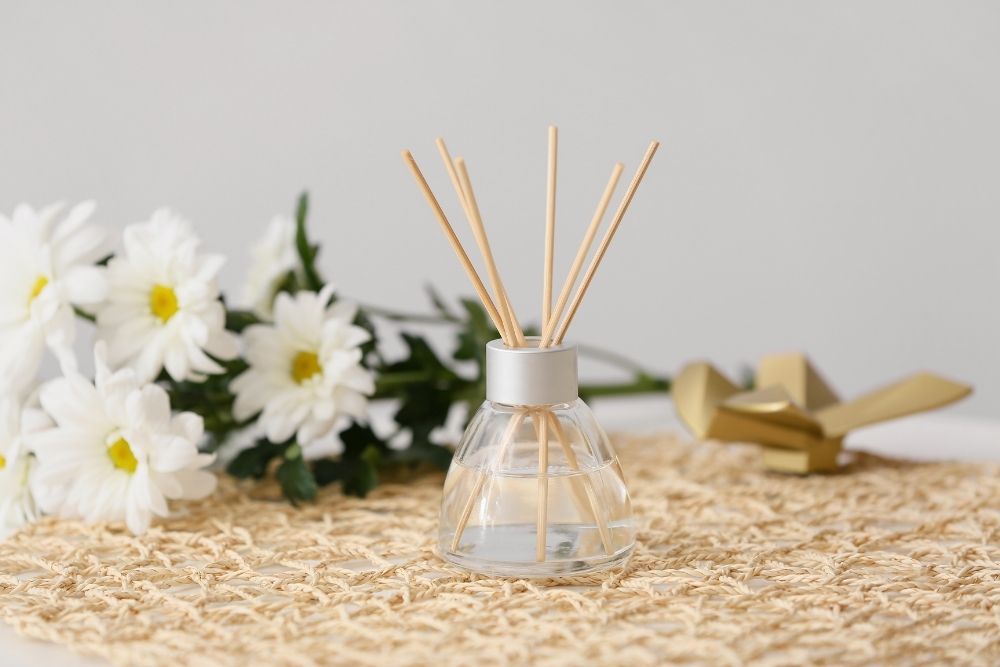You aren’t technically inhaling smoke, but you’re wondering, are reed diffusers bad for your lungs? Are all essential oils and carrier oils the same, or are some easier on your lungs?
These are all important questions to be asking before or while using a reed diffuser. Let’s get to the bottom of this!
Contents
Are Reed Diffusers Toxic to Breathe?
Yes and no. If you are using synthetic fragrance oils and chemical carrier oil filler, then reed diffusers are bad for your lungs.
It’s safer to inhale short spurts of fragrance oil in your reed diffuser, but who actually removes their reed sticks every hour to give their sniffer a rest? Not many people, if any.
Most of us keep our reed sticks in our reed diffusers for long periods. If you are like most of us then the safer alternative for your lungs is to use 100 percent pure essential oil and dilute it in a natural carrier oil.
Reed Diffuser General Safety Rules
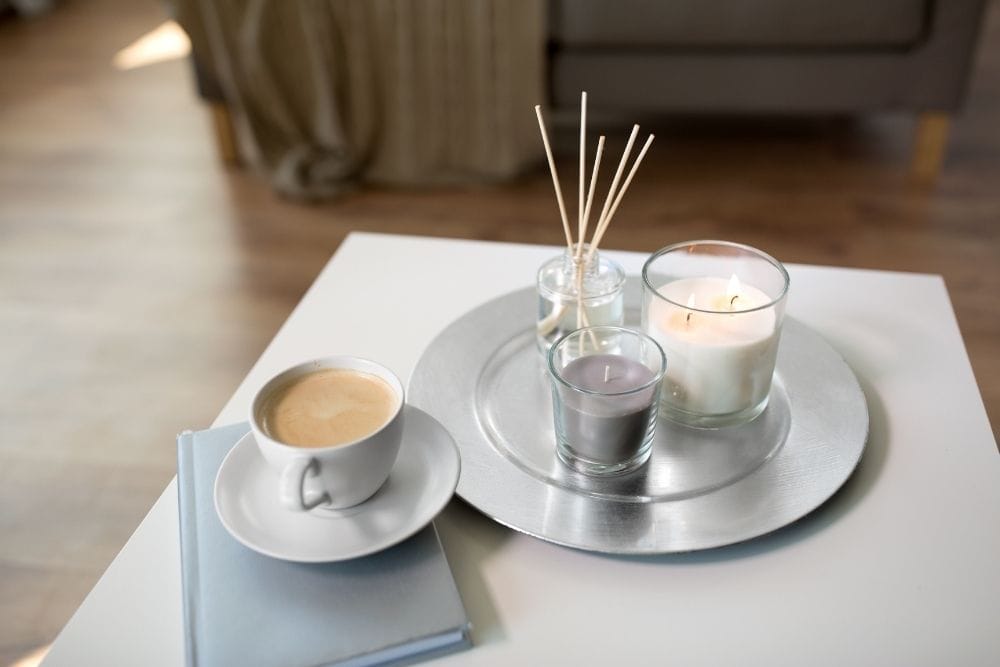
To prevent damaging your lungs, you’ll want to follow some general rules revolving around reed diffusers. Also, some people shouldn’t use reed diffusers at all – more on that later.
4 Reed Diffuser Safety Rules to Protect Your Lungs
- Always operate your reed diffuser in a well-vented area
- Use 100 percent pure essential oils and carrier oils
- Make sure your reed diffuser oils are properly diluted
- Monitor your body’s reaction to new diffused oils
- Take more frequent breaks if you need them
Operating your reed diffuser in a well-vented room or home is extremely important. You’ve probably visited someone’s home and noticed a reed diffuser sitting in a small closed bathroom. Before you know it your eyes are burning and stinging and you’re rushing to get out!
Not only is that feeling terribly uncomfortable, but using reed diffusers that way is bad for your lungs. Whether it’s pure oil or fragrance oil, it doesn’t matter.
Examples of Well-ventilated Areas for Reed Diffusers
- Open living room with a ceiling fan moving the scent around
- Kitchens with fans, openable windows, or screen patio doors
- Bedrooms with a ceiling fan, table fan, or floor fan
- Large spacious bathrooms with an open doorway
- Small to medium-sized bathrooms with open windows
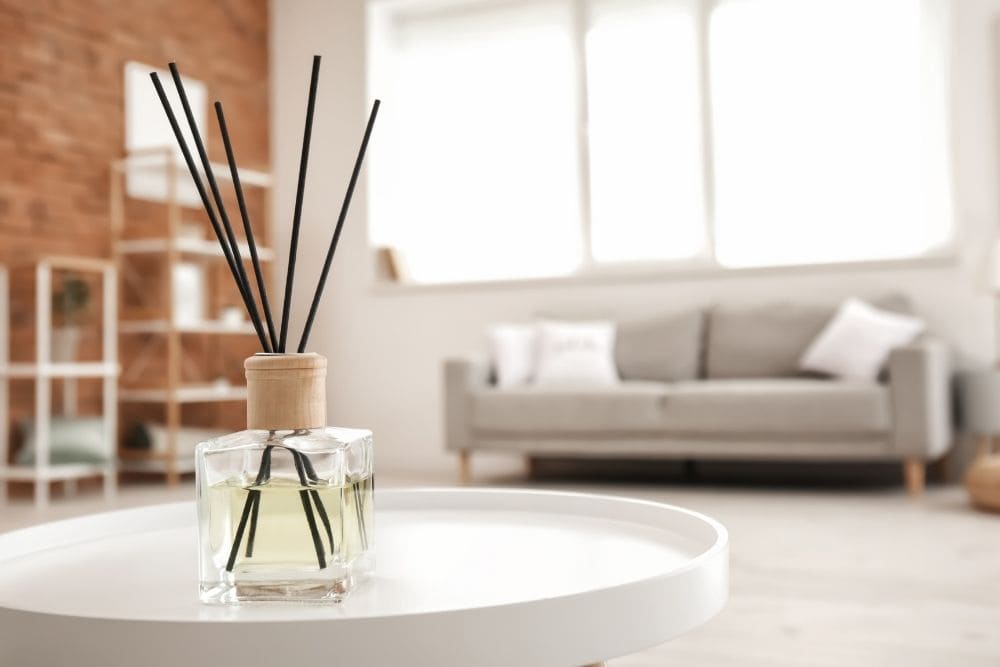
Ultimately you need some kind of room that allows outside air to flow in. Ceiling, floor, and table fans help disperse the scent so it doesn’t become overpowering and toxic.
Pure Essential Oil vs Fragrance Oil Safety
100 percent pure essential oils are made completely different from fragrance oils. Essential oils are produced by natural plants through farming fields. Fragrance oil on the other hand is manmade and is manufactured in a lab with synthetics and chemicals that mimic a plant scent.
Fragrance oils are sometimes disguised under other names. Some of the names to look for are parfum, perfume, aroma, premium fragrance, pure fragrance, pikake, and plumeria oil.
To keep your lungs healthy, purchase an essential oil and then properly dilute it in a carrier oil before using them in reed diffusers. Here is a list to reference what 100% pure essential oils are considered:

- Young Living lavender pure essential oil
- Edens Garden lemon 100% pure essential oil
- NOW essential oils 100% pure frankincense
- Revive cedarwood 100% pure essential oil
- Aura Cacia Helichrysum 100% pure essential oil
Proper Reed Diffuser Dilution
Any time you are using 100% pure essential oils you need to dilute them with another solution. The most common reed diffuser dilution substance is a plant-based carrier oil made specifically for aromatherapy and diffusers.
Here is a list of plant-based carrier oils to use in your reed diffuser:
- Almond, sweet carrier oil
- Apricot kernel carrier oil
- Argan carrier oil
- Avocado carrier oil
- Coconut, fractionated carrier oil
- Grapeseed carrier oil
- Hazelnut carrier oil
- Hemp seed carrier oil
- Jojoba carrier oil
- Meadowfoam carrier oil
- Neem carrier oil
- Pomegranate seed carrier oil
- Prickly pear seed carrier oil
- Rosehip carrier oil
- Safflower carrier oil
You can find so many more carrier oils online and in health stores. We hope this list helps jumpstart your carrier oil journey.
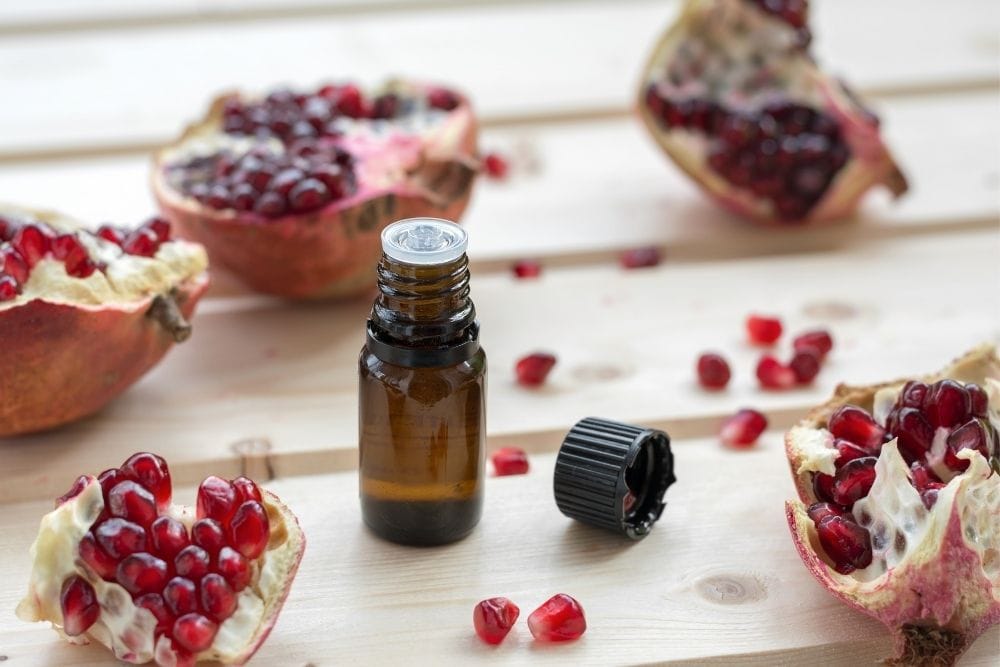
The proper dilution ratio of essential oils to carrier oil is:
30 – 50 essential oil drops + ½ cup of carrier oil = Proper reed diffuser oil-to-oil ratio.
Something I like to say is, “if it’s new, do a few.” Start with 30 drops (or even fewer) to test the oil combo scent to see if it is strong enough.
If it knocks you off your feet, then you know you need to ease up on the drops. Less is more!
Body Reactions to Reed Diffuser Overusage
Whether it is the first time or the 150th time using pure essential oil in your reed diffuser, pay attention to what your body is telling you. It is much easier said than done.
We get busy folding laundry, watching tv, or talking to people – it happens to all of us. If it is the first time, at least try to test the strength and scent before you get busy.
Here are some symptoms you may experience from inhaling improper dilution measurements, adverse reactions, or toxic over usage:
- Headache
- Nausea
- Burning eyes
- Burning throat
- Cough
- Shortness of breath
- Slowed breathing
You might also experience these symptoms if you are using your reed diffuser too frequently without enough breaks. The best thing you can do is immediately step outside and get fresh air. Call for medical attention if the symptoms are serious.
Who Should Avoid Reed Diffusers or Use Them Sparingly?
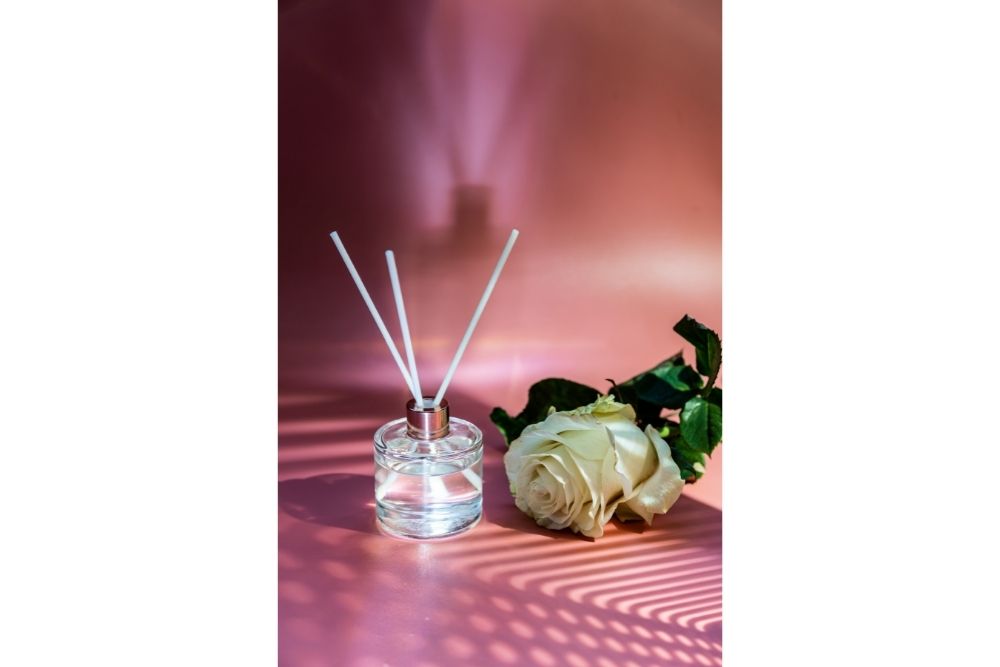
People who have lung problems and other breathing ailments should speak to their healthcare providers. Before using reed diffusers, get an expert opinion on what essential oils and method of operation is safe for them to use.
As a starter list, people with these ailments should moderate or avoid reed diffusers:
- Asthma
- COPD
- Chronic bronchitis
- Emphysema
- Lung cancer
- Pneumonia
- Pleural effusion
- Other breathing problems
American Academy of Allergy, Asthma & Immunology did a research study and found three of the worst essential oils to inhale if you have breathing problems. The three oils listed are lavender, eucalyptus, and tea tree oil. They are airborne irritants that can trigger bronchospasm.
The Bottom Line
Reed diffusers can be bad for your lungs depending on what oils you use, how you use them, and if you don’t follow recommendations and general safety guidelines. If you use them correctly, reed diffusers are not bad for your lungs.
Whether you choose to use a reed diffuser or not, you should always use them safely and never cut corners. Be confident in your abilities to use your reed diffuser safely from home.

I currently work as a medical receptionist, but my ultimate goal is to work as an occupational therapy assistant. Helping others achieve a better quality of life is something I’m after. That’s one of the main reasons I started this blog. Learn more about me.
